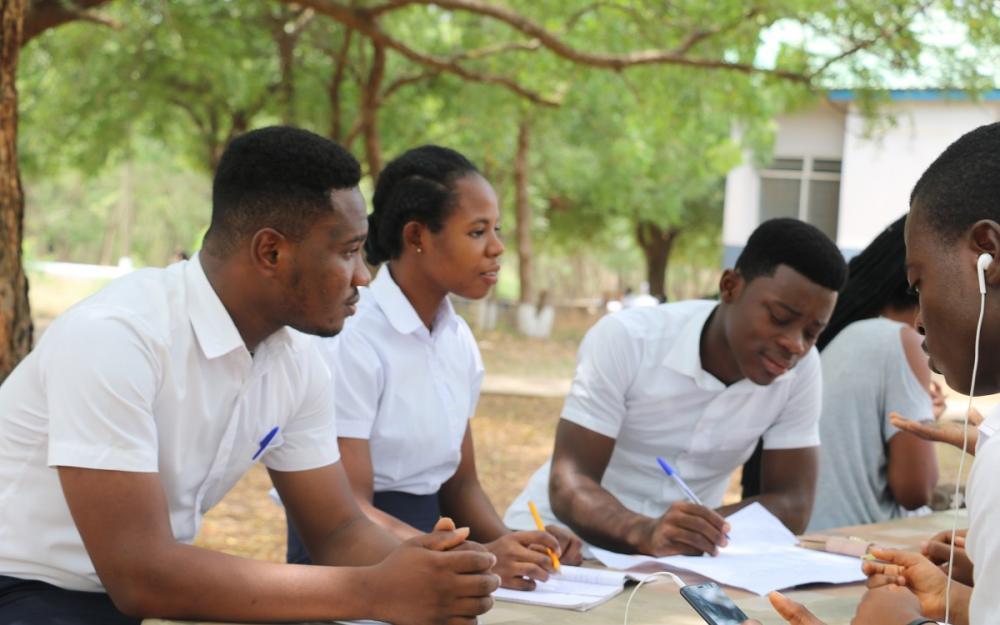Lifestyle-Health
5 studying habits that actually work

A new school year is approaching. Sometimes, it can be hard to get back into it. But a good way to go into the semester confidently is to know yourself, your limitations, and what forms of learning work best for you.
Though everyone has different learning styles, there are, psychologically, some universal truths on how to study effectively. Here are 5 studying habits that can help you succeed:
1. If you think you know everything without studying, that might be a bad sign.
We’ve all heard the truism “a little knowledge is a dangerous thing.” It turns out to have a psychological grounding behind it. The Dunning-Kruger Effect, first described in 1999, posits that individuals with very little knowledge or skill in a particular area tend to have the most confidence in it. As people gain more knowledge and become average at something, their confidence tends to decrease.
If they become truly exceptional or knowledgeable, their confidence will rise again, but even these people never have the level of confidence that newcomers have. It can also be because newcomers to a skill or field of study do not have the ability to judge whether they are good or bad at that thing. When you only learn a small amount about something, you have no glimpse into how complex it is.
2. Flashcards are better than re-reading notes.
Re-reading notes from a lecture is, scientifically, not a great way to study. Though it might help to look over your material when you start studying, it generally doesn’t work because it is a passive activity that doesn’t engage your brain. The best way to form and strengthen memories is to practice active recall, which forces your brain to retrieve information with little to no outside cues.
Flashcards, writing your own notes from scratch, or getting a friend to quiz you on materials, will force you into active recall. The more active recall you do, the easier it becomes; your brain will understand, through repetition, that this thing you recall so often is important.
3. Study in an environment similar to the one you take your tests in.
Studies show that the ability to recall memories depends a lot on context. Emotions, sensory input (like smells, sounds, or temperature), and location are most likely to trigger memories that happened in similar environments. A classic example of this is a study with multiple groups of scuba divers who all learned the same information (either underwater or on land) and were later tested on it.
The results showed that the scuba divers who learned and got quizzed in the same environment (regardless of whether that was on land or underwater) retained the information better than the divers who learned and quizzed in different environments.
The good part about this is that, as a college student, you probably already study in places similar to testing rooms, like libraries. However, if you think the place you study in has a drastically different environment from where you take tests, consider whether you might need a change of scenery.
4. Consider making visuals.
The picture-superiority effect suggests that people remember images more strongly than words, which may be because the brain stores images as the images themselves and the words tied to the images. For example, if you see a drawing of a tree, your brain encodes the image and the word “tree” into memory. But if you just read the word “tree,” the only thing encoded is the word.
Certain subjects, like anatomy or chemistry, work well for visuals. However, you can make visuals for any subject. Even if you study something more theoretical, mind maps, colour-coded information, or colourful charts and diagrams can help you organise and remember it.
5. Don’t overload yourself.
It’s better to have multiple study sessions over a long period of time, even if it’s just 10 minutes a day after each class at first, than “cramming” the night before. Sleeping well at night and eating breakfast in the morning will also help you pay attention and concentrate well during your test. Although I know that a lot of college students don’t do the last two things very often (I’m guilty of that myself), it really does help.
Do you have any study habits that work well? Let us know in the comments below!
-

 Lifestyle-Health5 months ago
Lifestyle-Health5 months agoInvesting ₹10,000 a month via SIP in this mutual fund would have swelled to ₹1.71 crore in 21 years. Check how
-

 Lifestyle-Health5 months ago
Lifestyle-Health5 months agoMultibagger small-cap stock under ₹50 jumps despite sell-off in Indian stock market
-

 News In Diaspora5 months ago
News In Diaspora5 months agoHotels and homes on Crete evacuated as wildfire burns out of control
-

 Breaking News2 months ago
Breaking News2 months agoIsrael Names 77 Countries That Boycotted Netanyahu’s UN Speech In Protest Over Gaza War
-

 Lifestyle-Health6 months ago
Lifestyle-Health6 months agoOgie Alcasid’s daughter Leila ties the knot in Australia
-

 Lifestyle-Health5 months ago
Lifestyle-Health5 months agoDriving Abroad: These 34 countries accept SA licenses
-

 Politics6 months ago
Politics6 months agoFinally Federal Government of Nigeria Assures Citizens, Says The President Isn’t Controlled by Any Cabal
-

 Lifestyle-Health3 months ago
Lifestyle-Health3 months ago11 signs of growth that you might have missed
-

 Breaking News3 months ago
Breaking News3 months agoVeteran actress, Peju Ogunmola, loses only child, Ayomikun
-

 Lifestyle-Health6 months ago
Lifestyle-Health6 months ago10 Unwritten Rules for Visiting Bali that Travelers Should Know
-

 Lifestyle-Health3 months ago
Lifestyle-Health3 months agoWhen to take time off and focus on yourself and your family
-

 Lifestyle-Health5 months ago
Lifestyle-Health5 months agoAyala, UPC Renewables JV to sell stake in 1 GW projects in $600 mn deal

